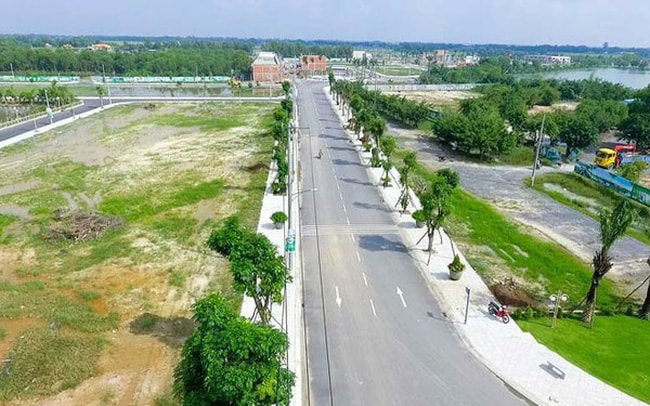'Feverish' residential land market, should you buy now or not?
Land fever has spread to many provinces and cities, raising concerns about a "price bubble" and wondering whether it is wise to invest and buy at this time.
To answer the concerns of real estate buyers, General Director of Viet An Hoa Company, Tran Khanh Quang said that land buying behavior depends on many different needs. Therefore, it is necessary to divide into target groups to give specific recommendations.
Mr. Quang pointed out that there are 3 main groups of customers buying land in the market today: speculators, investors and buyers for use (saving, building houses, giving to children). This expert pointed out the characteristics and habits of each customer group with a warning.
For speculators:Currently, the real estate market in many provinces and cities is in the hands of speculators and is led by this group. For the group of customers who collect land for speculation, the hot market is a great opportunity for them to create waves and surf. Most speculators have large and long-term capital, enough buying and selling power to cause price fluctuations in the market... They often go in groups to buy and have a fairly systematic buying and selling strategy in a proactive position.
The hotter the market, the more active speculators are. They only stop buying when the market turns around, falls into difficulty, and begins the crisis cycle.
 |
| Illustration photo. Source: internet |
For investors: Land fever is both an opportunity and a challenge for investors. In terms of opportunities, land prices increase, this group of customers can take advantage of the good trading market, high purchasing power, easy to buy and sell for profit. However, investors do not have enough power to create waves but only follow the waves, so they are not as proactive as speculators.
The challenge for investors is that despite their knowledge and understanding of the market, they cannot avoid the mentality of buying with the crowd. The rising price bubble makes greed grow, pushing investors into a situation where they prioritize profits, disregard real value and legality, leading to high risks.
Advice for investors is that if you buy land when the market is hot with idle cash, only spend 30% of the cash to invest in real estate at the present time. The remaining 70% of the cash is considered as cash flow to look for opportunities and should be kept to release at a more appropriate time. If using financial leverage at this time, investors must consider not to borrow beyond the safety threshold (only borrow 50% of the property value or less).
For purchasers to use: This is the least experienced group of customers in the market and is more likely to suffer losses if buying land during hot market times. This group of customers only buys land when they have a need (to use, keep as savings, give to children) and often has financial resources ready or can find financial support (from banks, family).
If the buyer of land for use is not in a hurry, he can delay the transaction to observe, explore, evaluate, find legal advice, and then make a decision. In fact, the current land price level is very high, with virtual prices and real prices mixed together.
As for those who buy land for their own use and have to borrow money from banks and are financially constrained, they can temporarily delay for 12 months to survey the market and then make a decision based on actual developments. Waiting for prices to fall to buy land has a disadvantage that it is likely to take a very long time, at least 12 months or more to know the market trend.
A contradictory reality today is that, although the land fever has occurred and lasted continuously for 4 years (2015 - 2016 - 2017-2018), it is still impossible to determine when the market will enter a recession cycle. In addition, it is not excluded that, even when land prices have decreased, the market price of the property is still too high compared to the affordability of this group of customers.
Expert Tran Khanh Quang commented that at any time, whether in crisis or fever, the real estate market has intertwined buying and selling needs. For those who buy land for use, delaying when encountering a land fever scenario is considered a safe solution to avoid buying at a loss. Meanwhile, for speculators and investors, land fever is a golden time to buy and sell immediately because waiting will make them lose the opportunity.
Answering the question of whether there will ever be a decline after the land fever, Mr. Quang said that if there is an increase cycle, there will be a decrease cycle. However, the increase-decrease graph of land prices also depends on the location and area of the real estate.
If the land has complete legal documents, is located in a place that can be built, exploited, lived in or rented, the possibility of price reduction is very low. On the contrary, land located in a location with low population density, incomplete legal documents, low opportunities for exploitation, leasing, and commercial activities, then the land price may adjust when the market enters a recession or crisis cycle.

